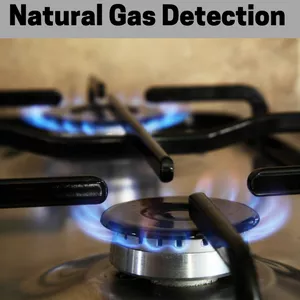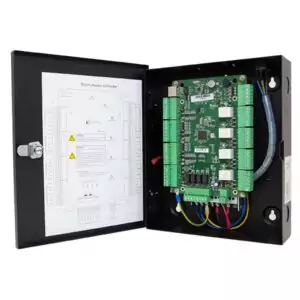
09 Jan Natural Gas Leak: How to Detect & The Ultimate Solution

Do you know how to detect a natural gas leak?
We use natural gas to heat our homes, cook food in the kitchen, warm our water up, and help produce electricity to power our homes. Natural gas is a great fuel that makes for quite the convenience, but it also poses a potential harm to your home.
With appliances running on natural gas, you may experience a natural gas leak. This is dangerous because natural gas is flammable, and enough of it can cause asphyxiation and be fatal.
Natural gas is colorless, and in its natural state is odorless. So how can you possibly detect natural gas leaks? Let’s run through everything you need to know.
Natural Gas Leak: Use Your Senses to Detect
Because natural gas is odorless, utility companies add a harmless chemical to the gas to give it a distinct smell. This smell is often described as a rotten-egg-like, or smelling like sulfur. This chemical is added, so it is easier to detect a potentially deadly gas leak.
That said, if you detect a natural gas leak, you’ll need to use your senses to verify. Let’s run through how you can tell if your home has a natural gas leak:
- It smells like sulfur
As described earlier, utility companies add a chemical called mercaptan to the natural gas so that it is easier to smell and detect.
This chemical they add is often described as smelling like rotten eggs or sulfur. If you smell this, it may be a good indication of a leak.
- You hear a faint whistling/hissing sound
Depending on where you suspect the natural gas leak is, you may be able to hear a faint hissing or whistling sound coming from your gas line. This could be a surefire way to know that you are experiencing a natural gas leak.
- You can see bubbles forming on the suspected gas leak area
If you suspect one of your gas lines is experiencing a gas leak, what you can do is mix a little bit of soap and water together and rub it on on the suspected spot.
If you see bubbles appear, it is most likely a gas leak. This is because as the gas is escaping, it is causing the soapy mixture to foam.
- You can see dust being blown around the suspected area outside your home
If there is a gas leak outside your house, you may notice dust and debris being blown around a bit due to the gas leaking from a line nearby.
The Ultimate Solution
The above tips are great ways to identify whether you are experiencing a gas leak. However, there is an even better solution: Having a natural gas detector is the best way to know if you are experiencing a natural gas leak.
Natural gas detectors take the guess work out of it, and they will help alert you immediately so you can take action.
Also, if you have a faulty furnace, there may be carbon monoxide build up in your home, which can be dangerous. Having a carbon monoxide detector is another way to stay safe.
What Should You Do If You Detect a Natural Gas Leak?
If you detect a natural gas leak, there are a couple things you need to do immediately:
If the gas smell isn’t super strong… open up some windows for ventilation. Do a quick check to make sure that the pilot lights on the stove are off, and call either the authorities or your utility provider as soon as possible.
If the smell is stronger… get out of the house immediately. Don’t turn on any electrical appliances and as soon as you are in a safe place, call the authorities and your utility provider.
Also, it may be smart to notify your next door neighbors and let them know if your situation so they can act accordingly.
Stay Safe With Zions Security Alarms
Now that you know more about how to detect natural gas leaks, if you believe your home is experiencing a leak, make sure you take action immediately.
Use your senses (smell, sight, hearing) and stay safe from potential natural gas leaks. And don’t forget, the best way to protect your home and loved ones is to install a natural gas detector in your home so you can be notified immediately.
It’s also a smart decision to have smoke and carbon monoxide detector.
For more information on how to stay safe and monitor your home, be sure to check out our blog.


 4 Doors Access Control Metal Enclosure
4 Doors Access Control Metal Enclosure
 DSC Compatible Chrome Keyfob
DSC Compatible Chrome Keyfob
No Comments